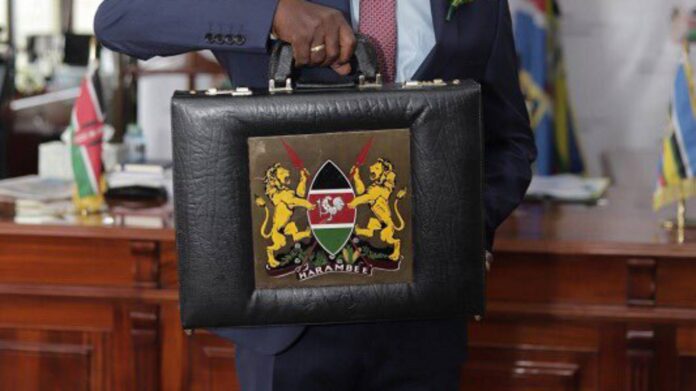Economic and policy experts have raised red flags over the Ksh.4.2 trillion national budget for the 2025/26 financial year, warning that Kenya may be heading toward increased economic strain due to a mismatch between projected revenue and planned expenditure.
Speaking during a televised discussion on Citizen TV on Thursday, the experts questioned the feasibility of the ambitious spending plan tabled by the National Treasury. They argued that the budget is heavily reliant on borrowing and unrealistic revenue targets, which could heighten the country’s debt burden and impose further pressure on taxpayers.
Liban Guyo, Deputy Director at the National Cohesion and Integration Commission (NCIC), criticized the proposal as “overambitious,” pointing to the significant reliance on domestic and external borrowing to bridge a nearly Ksh.900 billion budget gap.
“It’s an overambitious budget,” said Guyo. “The Kenya Revenue Authority is projected to collect Ksh.2.75 trillion, but historically it has failed to meet targets. Unless they widen the tax net and improve individual compliance, the shortfall will persist.”
Currently, Treasury projects to raise Ksh.2.7 trillion in revenue and an additional Ksh.560 billion in government levies and service fees, totalling about Ksh.3.3 trillion. With Ksh.46.9 billion expected from grants, the budget faces a deficit of approximately Ksh.876 billion, to be covered through borrowing.
Kenya Association of Manufacturers (KAM) CEO Tobias Alando emphasized the need for strategic incentives to support key sectors. He noted that manufacturing, tourism, services, and agriculture should be empowered to boost revenue streams and stimulate broader economic growth.
“We need to be cognizant of how the budget can stimulate other sectors of the economy. If the government provides clear incentives, achieving the Ksh.4.2 trillion target becomes more realistic,” Alando said.
However, concerns also arose around tax policy changes. Alando cautioned that shifting goods from zero-rated to tax-exempt status would increase input VAT costs for manufacturers, likely raising prices for consumers.
Neema Lois Wangui, Programs Support Officer at Bajeti Hub, pointed to a consistent mismatch between revenue performance and growing national expenditure. “Historically, we have not met our revenue targets, yet we continue to increase our expenditure. This raises serious questions about fiscal sustainability,” she said.
As Parliament reviews the proposed estimates, experts are calling for a more balanced and realistic fiscal approach to avoid overburdening taxpayers and compounding national debt.
Written By Rodney Mbua



















